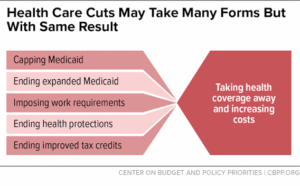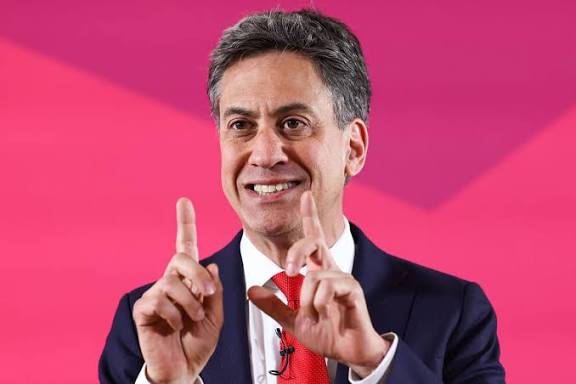Healthcare in Danger: New Proposal Could Remove Coverage for Millions

A House Republican budget proposal, referred to in news reports as the “Big Beautiful Bill” or “One Big Beautiful Bill”. Today we will discuss about Healthcare in Danger: New Proposal Could Remove Coverage for Millions
Healthcare in Danger: New Proposal Could Remove Coverage for Millions
In what many experts warn is a potentially catastrophic shift for the U.S. healthcare system, a newly proposed legislation threatens to remove coverage for millions of Americans. Proponents of the bill argue it will lead to more “personal responsibility” and cost savings, but critics—including policy analysts, medical professionals, and hospital groups—say the changes could decimate Medicaid, destabilize the Affordable Care Act (ACA) marketplaces, and leave vulnerable populations without essential healthcare access.
This article explores the proposal, the scale of its impact, the groups most at risk, and why many see it as an existential threat to America’s safety‑net health system.
What Is the Proposal?

The controversial measure centers on a sweeping budget reconciliation package informally dubbed the “One Big Beautiful Bill Act”. The bill aims to slash federal spending—and much of those cuts would come from healthcare, particularly Medicaid and provisions under the ACA.
Key provisions include:
Medicaid Work Requirements: The proposed requirement for many Medicaid beneficiaries to work or volunteer for 80 hours a month (or be in school) to retain coverage.
Frequent Eligibility Checks: Instead of annual checks, enrollees would need to verify their Medicaid eligibility every six months.
Cuts to State Funding Mechanisms: The bill proposes to reduce the “provider tax” states impose on Medicaid providers from 6% to 3.5% by 2031.
Higher Cost-Sharing: For some Medicaid enrollees, the plan would allow states to impose service co-pays—up to $35 per service on certain beneficiaries.
ACA Marketplace Changes: The proposal does not extend enhanced ACA subsidies, meaning many who buy coverage through the ACA exchanges could see their financial assistance expire or be weakened.
Who Stands to Lose Coverage?
The numbers are staggering. A breakdown:
Medicaid Participants: Up to 8 million fewer people in Medicaid, especially in states that expanded it via the ACA.
ACA Marketplace Enrollees: Several million more could lose marketplace insurance as premium subsidies are redirected, reduced, or not extended.
Overall Insurance Loss: Analysts estimate around 11 million people could become uninsured if the bill passes.
Particularly vulnerable are:
Low-income individuals who rely on Medicaid for primary care, chronic illness treatment, and long-term care.
People with disabilities and seniors, many of whom depend on Medicaid for nursing-home and other long-term services.
Rural communities, where safety-net hospitals are already under financial strain and could face closure with reduced Medicaid funding.
Immigrant populations, including undocumented residents whom the bill specifically penalizes.
Women’s health and reproductive services providers potentially losing Medicaid funding support.
Human Cost: More Than Just Numbers
Losing health coverage is not just a matter of paperwork—it has real, measurable human costs. Studies forecast that these proposed cuts could lead to an additional 16,600 preventable deaths every year. According to the research:
1.9 million people could lose their personal doctor.
1.3 million may skip essential medications.
Hundreds of thousands of women might forgo critical mammogram screenings.
Tens of thousands could face medical debt when turned away due to lack of coverage.
Hospitals are already sounding the alarm. According to safety-net providers and healthcare associations, these cuts would severely strain hospitals that rely on Medicaid reimbursement to care for the uninsured and vulnerable. Some even warn of hospital closures, particularly in rural regions.
Political & Social Backlash
The backlash to the proposal has been swift and fierce. Critics argue that the plan seeks to dismantle decades of progress in U.S. healthcare, disproportionately harming low-income communities, people with disabilities, people of color, LGBTQ+ populations, and immigrants.
The Human Rights Campaign (HRC) has explicitly condemned the bill, warning that it “jeopardizes health coverage for millions … with a particularly devastating impact on low-income senior citizens, women, children, LGBTQ people, and people living with HIV.”
Healthcare associations have echoed this sentiment, calling the bill “devastating” and emphasizing that it could strip coverage from an estimated 13.7 million people. They argue the bill places ideological priorities (such as tax cuts) above the health
How useful was this post?
Click on a star to rate it!
Average rating 0 / 5. Vote count: 0
No votes so far! Be the first to rate this post.
About the Author
usa5911.com
Administrator
Hi, I’m Gurdeep Singh, a professional content writer from India with over 3 years of experience in the field. I specialize in covering U.S. politics, delivering timely and engaging content tailored specifically for an American audience. Along with my dedicated team, we track and report on all the latest political trends, news, and in-depth analysis shaping the United States today. Our goal is to provide clear, factual, and compelling content that keeps readers informed and engaged with the ever-changing political landscape.




